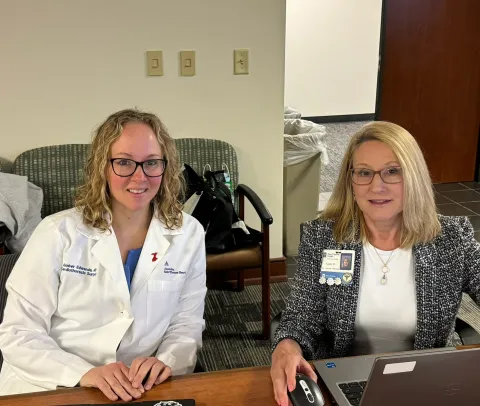Overview
In the fast-paced environment of healthcare, hospitals face significant challenges related to medical records. The increasing number of missing documents in electronic medical records (EMR) can pose obstacles to case abstraction and risk adjustment. This case study reveals the EMR challenges Ascension Saint Thomas Hospital faced and the steps the data team took to improve document management and overall performance.
The Challenges

Ascension Saint Thomas Hospital, based in Nashville, Tennessee, encountered persistent issues with missing documentation, including anesthesia records, Intraoperative Transesophageal Echocardiograms, perfusion records, and Pulmonary Function Test results. Additionally, the surge in outside pre-procedure cardiac catheterization records sent on film hindered the abstraction process. As a result, identifying areas for facility performance improvement, such as preoperative beta-blocker administration and reducing the time from the operating room exit to extubation, was difficult.
A key obstacle was the time it took to address missing paperwork. It required extensive coordination with different departments, which caused delays in closing abstracted cases. Moreover, the absence of dictated preoperative cardiac catheterization records in patients' charts added to the challenge, necessitating additional time to retrieve results. Identifying areas for improvement in facility performance demanded accurate and relevant data, presenting a knowledge deficit that needed resolution.
Actions Taken Using STS National Database
To mitigate the challenges, the hospital's database manager took several strategic actions. One of the first steps was to engage The Society of Thoracic Surgeons Adult Cardiac Surgery National Database. Accurate and relevant data from the STS Database uncovered areas for improvement. The physician champion played a pivotal role in communicating this information to hospital staff and leadership, fostering a culture of change and continuous improvement.
The hospital’s database manager collaborated with the respiratory department to establish a better process for scanning PFT results into the patient's medical record. Communication with surgeons emphasized the need to dictate catheterization results into patients' charts upon admission. Medication outliers were reported to surgical staff and the focus on preoperative beta-blocker administration increased. A closer examination of ventilation hours led to education initiatives and improved hand-off communication from anesthesiology to nursing.
Results
Ascension Saint Thomas Hospital saw a significant reduction in missing respiratory records and fewer requests for missing outside facility pre-procedure catheterization reports. Although preoperative beta-blocker administration remains a work in progress, communication and reporting efforts have shown positive trends. Ventilation outliers decreased across various surgical categories, demonstrating improved outcomes and reduced complications.